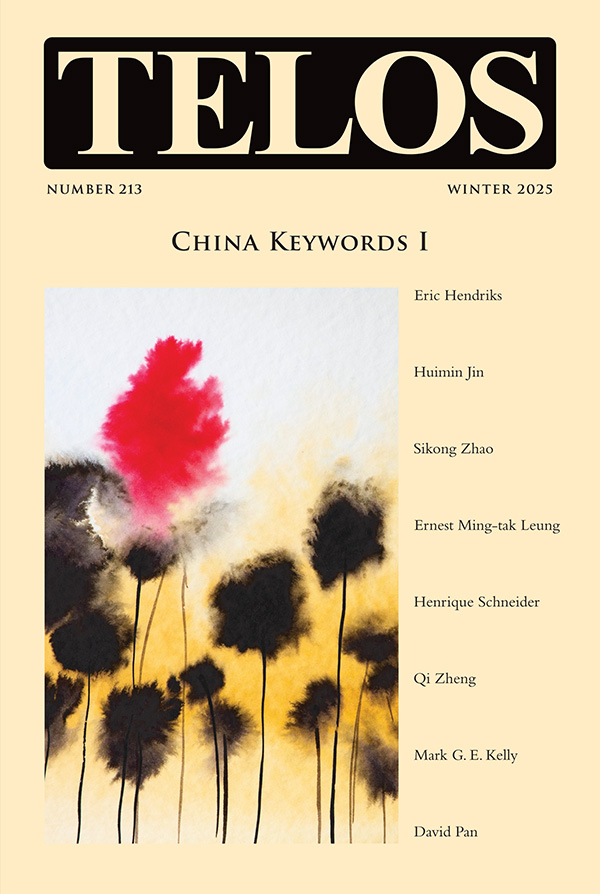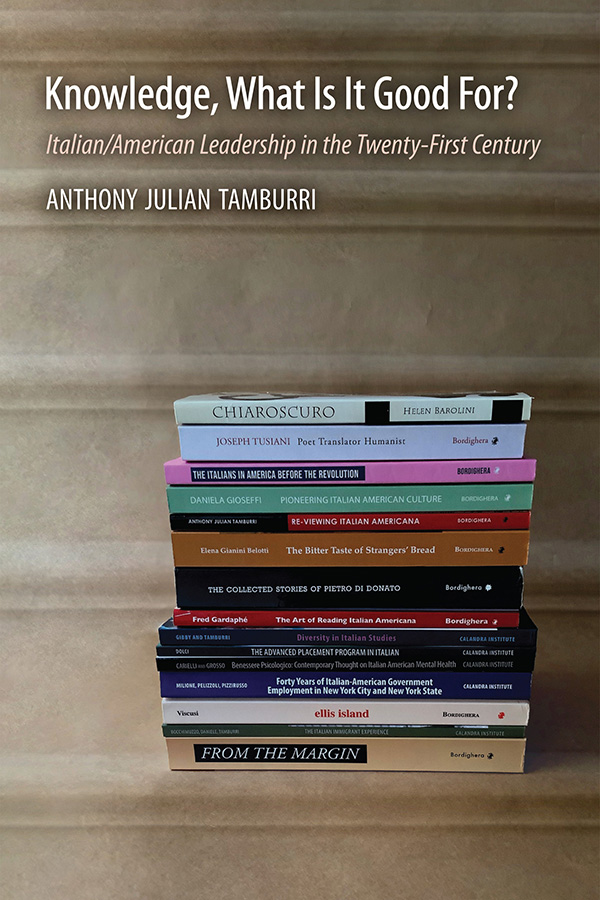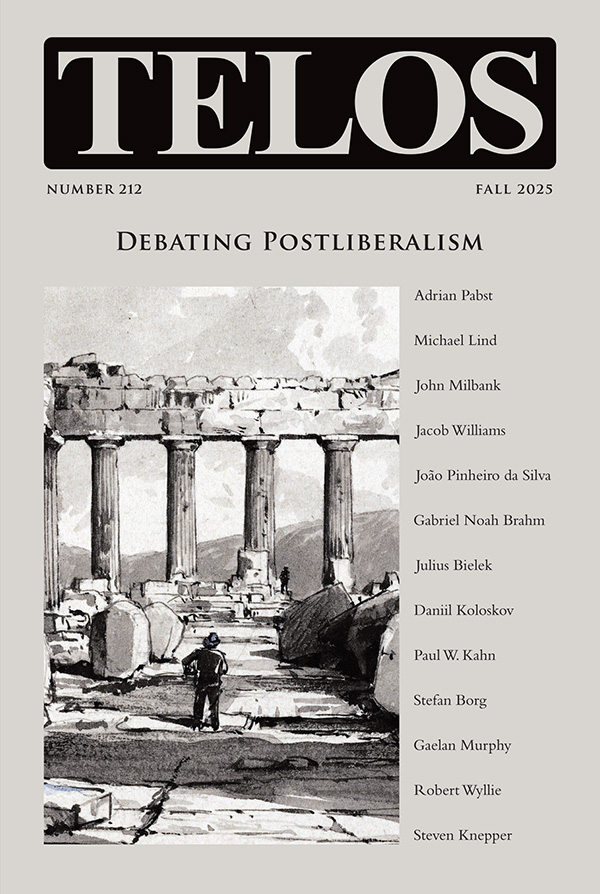By Eric Hendriks and David Pan · Tuesday, December 30, 2025 Telos 213 (Winter 2025): China Keywords I is now available for purchase in our store. Individual subscriptions to Telos are also available in both print and online formats.
 China saturates Western media and academic discourse, invoked incessantly as a force remaking the world, while the political and social-theoretical ideas through which China thinks, judges, and interprets that world remain largely unheard. Western discourses on China exhibit a persistent tendency toward objectification and reification. Chinese phenomena figure as objects of analysis, yet such analyses rarely delve into their subjective-interpretative depth. Were they to do so, they would encounter these “objects” as subjects who actively make sense of their worlds, carrying ideas, ideals, and self-conceptions embedded in distinct interpretive traditions. At the same time, Western media and academics are often unaware that their own views are actively influenced by the Chinese Communist Party (CCP), which spends $10 billion per year on international propaganda efforts that include advertising, news production, and social media campaigns. China saturates Western media and academic discourse, invoked incessantly as a force remaking the world, while the political and social-theoretical ideas through which China thinks, judges, and interprets that world remain largely unheard. Western discourses on China exhibit a persistent tendency toward objectification and reification. Chinese phenomena figure as objects of analysis, yet such analyses rarely delve into their subjective-interpretative depth. Were they to do so, they would encounter these “objects” as subjects who actively make sense of their worlds, carrying ideas, ideals, and self-conceptions embedded in distinct interpretive traditions. At the same time, Western media and academics are often unaware that their own views are actively influenced by the Chinese Communist Party (CCP), which spends $10 billion per year on international propaganda efforts that include advertising, news production, and social media campaigns.
Continue reading →
By Telos Press · Monday, December 1, 2025 Now available: Knowledge, What Is It Good For? Italian/American Leadership in the Twenty-First Century, by Anthony Julian Tamburri. Order the paperback edition today in our online store and save 20% by using the coupon code BOOKS20.
Knowledge, What Is It Good For? Italian/American Leadership in the Twenty-First Century
by Anthony Julian Tamburri
 Anthony Julian Tamburri’s Knowledge, What Is It Good For? provides a detailed and systematic examination of Italian/American leadership today, whether that leadership arose through consensus or self-appointment. The various chapters describe the key issues at hand, which overall reflect a lack of knowledge about the history of Italians and their descendants in the United States. Through the critique of these issues, Tamburri emphasizes the need for solutions to remedy these gaps. This book is a follow-up to Tamburri’s A Politics of [Self‑]Omission: The Italian/American Challenge in a Post-George Floyd Age (2022), which offered a first look at influential individuals and leaders of non-scholarly Italian/American organizations. Anthony Julian Tamburri’s Knowledge, What Is It Good For? provides a detailed and systematic examination of Italian/American leadership today, whether that leadership arose through consensus or self-appointment. The various chapters describe the key issues at hand, which overall reflect a lack of knowledge about the history of Italians and their descendants in the United States. Through the critique of these issues, Tamburri emphasizes the need for solutions to remedy these gaps. This book is a follow-up to Tamburri’s A Politics of [Self‑]Omission: The Italian/American Challenge in a Post-George Floyd Age (2022), which offered a first look at influential individuals and leaders of non-scholarly Italian/American organizations.
Continue reading →
By Telos Press · Wednesday, November 26, 2025  In today’s episode of the Telos Press Podcast, Adrian Pabst talks with Michael Lind and John Milbank about postliberalism, the topic of the current issue of Telos, “Debating Postliberalism.” Adrian Pabst’s “The New Era: What Comes After the Self-Erosion of Liberalism,” Michael Lind’s “After Liberalism,” and John Milbank’s “The Politics of Virtue” all appear in the issue. We have made the articles by Pabst and Lind available as open access publications, and they can be read for free at our website. To purchase a copy of the issue or to subscribe to Telos, visit our online store. In today’s episode of the Telos Press Podcast, Adrian Pabst talks with Michael Lind and John Milbank about postliberalism, the topic of the current issue of Telos, “Debating Postliberalism.” Adrian Pabst’s “The New Era: What Comes After the Self-Erosion of Liberalism,” Michael Lind’s “After Liberalism,” and John Milbank’s “The Politics of Virtue” all appear in the issue. We have made the articles by Pabst and Lind available as open access publications, and they can be read for free at our website. To purchase a copy of the issue or to subscribe to Telos, visit our online store.
Continue reading →
By Adrian Pabst · Friday, October 3, 2025 Telos 212 (Fall 2025): Debating Postliberalism is now available for purchase in our store. Individual subscriptions to Telos are also available in both print and online formats.
 In 1998, Alan Wolfe remarked that “the right won the economic war, the left won the cultural war, and the center won the political war.” It was the age of triumphant liberalism, freed from the shackles of the Cold War confrontation between the capitalist West and the Communist East. Capitalism was now the uncontested model, as Western countries increasingly abandoned a more embedded social market economy in favor of the global market-state while emerging market economies embraced the state-market. In each case, society was the loser. Even as countries converged internationally and China morphed into an economic powerhouse, asset and income inequality increased within countries, and so did regional disparities—between the former heartlands of the Rust Belt and the new metropolitan hubs exemplified by Silicon Valley. Building on the writings of Paul Piccone and Christopher Lasch, critics of liberalism such as Christophe Guilluy, Nancy Fraser, Michael Lind, and Quinn Slobodian have highlighted the growing gulf between elite enclaves and peripheral wastelands, or hubs vs. heartlands, but their analysis has mostly been dismissed as nostalgic or downright reactionary. Something similar applies to politicians on both sides of the spectrum who have questioned liberal economics—whether Pat Buchanan in the past or JD Vance and Josh Hawley more recently on the Republican right, or Bernie Sanders, Ro Khanna, and Chris Murphy on the Democratic left. In 1998, Alan Wolfe remarked that “the right won the economic war, the left won the cultural war, and the center won the political war.” It was the age of triumphant liberalism, freed from the shackles of the Cold War confrontation between the capitalist West and the Communist East. Capitalism was now the uncontested model, as Western countries increasingly abandoned a more embedded social market economy in favor of the global market-state while emerging market economies embraced the state-market. In each case, society was the loser. Even as countries converged internationally and China morphed into an economic powerhouse, asset and income inequality increased within countries, and so did regional disparities—between the former heartlands of the Rust Belt and the new metropolitan hubs exemplified by Silicon Valley. Building on the writings of Paul Piccone and Christopher Lasch, critics of liberalism such as Christophe Guilluy, Nancy Fraser, Michael Lind, and Quinn Slobodian have highlighted the growing gulf between elite enclaves and peripheral wastelands, or hubs vs. heartlands, but their analysis has mostly been dismissed as nostalgic or downright reactionary. Something similar applies to politicians on both sides of the spectrum who have questioned liberal economics—whether Pat Buchanan in the past or JD Vance and Josh Hawley more recently on the Republican right, or Bernie Sanders, Ro Khanna, and Chris Murphy on the Democratic left.
Some political and policy differences notwithstanding, the mainstream left and right—in the United States, Europe, and other Western countries such as Japan, South Korea, Australia, and New Zealand—took a progressive turn and embraced untrammeled markets, hyper-individualism, and foreign military adventures. The ruling elites felt vindicated by the “end of history” utopia of a global convergence toward liberal market democracy and the inevitable forward march of globalization. Both liberal interventionists and neoconservative crusaders advanced the vision of America as a liberal Leviathan that secures the social contract at home and U.S. supremacy abroad.
Continue reading →
By David Pan · Monday, June 30, 2025 Telos 211 (Summer 2025): Dispatches from the Culture Wars is now available for purchase in our store. Individual subscriptions to Telos are also available in both print and online formats.
 As we survey the landscape of war today, it has become truer than ever that hot wars are a consequence of culture wars. Trump’s support for Israel against Iran contrasts with the discourse on college campuses that opposes Israel as a white supremacist, settler-colonial state. In opposing the most egalitarian liberal democracy in the Middle East, this left-wing perspective poses a major threat to the liberal values that the United States has always stood for. But the anti-Israel protests at colleges represent only the tip of the iceberg of a more widespread form of hierarchical rule that has established itself globally through a “new class” of managers. Looked at in this way, the culture war at U.S. universities will have far-reaching consequences for the future of the world. At stake are not merely research funding and tax breaks, but a social structure that privileges expert opinion over popular rule in all areas of our society. Colleges and universities are the key to this system, as the social sciences train the professionals that go on to manage the lives of the uncredentialed, while the humanities develop the perspectives that justify this form of managerial rule. In this issue of Telos, we consider how today’s culture wars over universities will shape the global future. As we survey the landscape of war today, it has become truer than ever that hot wars are a consequence of culture wars. Trump’s support for Israel against Iran contrasts with the discourse on college campuses that opposes Israel as a white supremacist, settler-colonial state. In opposing the most egalitarian liberal democracy in the Middle East, this left-wing perspective poses a major threat to the liberal values that the United States has always stood for. But the anti-Israel protests at colleges represent only the tip of the iceberg of a more widespread form of hierarchical rule that has established itself globally through a “new class” of managers. Looked at in this way, the culture war at U.S. universities will have far-reaching consequences for the future of the world. At stake are not merely research funding and tax breaks, but a social structure that privileges expert opinion over popular rule in all areas of our society. Colleges and universities are the key to this system, as the social sciences train the professionals that go on to manage the lives of the uncredentialed, while the humanities develop the perspectives that justify this form of managerial rule. In this issue of Telos, we consider how today’s culture wars over universities will shape the global future.
Continue reading →
By Telos Press · Monday, May 19, 2025 With Donald Trump’s second presidential term now underway, it is the perfect time to pick up your copy of Timothy W. Luke’s The Travails of Trumpification, from Telos Press Publishing. Save 25% on the paperback edition of The Travails of Trumpification by purchasing it in our online store and using the coupon code TRAVAILS25 during checkout. The journal Educational Philosophy and Theory published a collection of reviews of The Travails of Trumpification in 2022, excerpts of which appear below. Read the full set of reviews here (subscription required).
Continue reading →
|
|
 China saturates Western media and academic discourse, invoked incessantly as a force remaking the world, while the political and social-theoretical ideas through which China thinks, judges, and interprets that world remain largely unheard. Western discourses on China exhibit a persistent tendency toward objectification and reification. Chinese phenomena figure as objects of analysis, yet such analyses rarely delve into their subjective-interpretative depth. Were they to do so, they would encounter these “objects” as subjects who actively make sense of their worlds, carrying ideas, ideals, and self-conceptions embedded in distinct interpretive traditions. At the same time, Western media and academics are often unaware that their own views are actively influenced by the Chinese Communist Party (CCP), which spends $10 billion per year on international propaganda efforts that include advertising, news production, and social media campaigns.
China saturates Western media and academic discourse, invoked incessantly as a force remaking the world, while the political and social-theoretical ideas through which China thinks, judges, and interprets that world remain largely unheard. Western discourses on China exhibit a persistent tendency toward objectification and reification. Chinese phenomena figure as objects of analysis, yet such analyses rarely delve into their subjective-interpretative depth. Were they to do so, they would encounter these “objects” as subjects who actively make sense of their worlds, carrying ideas, ideals, and self-conceptions embedded in distinct interpretive traditions. At the same time, Western media and academics are often unaware that their own views are actively influenced by the Chinese Communist Party (CCP), which spends $10 billion per year on international propaganda efforts that include advertising, news production, and social media campaigns. 




